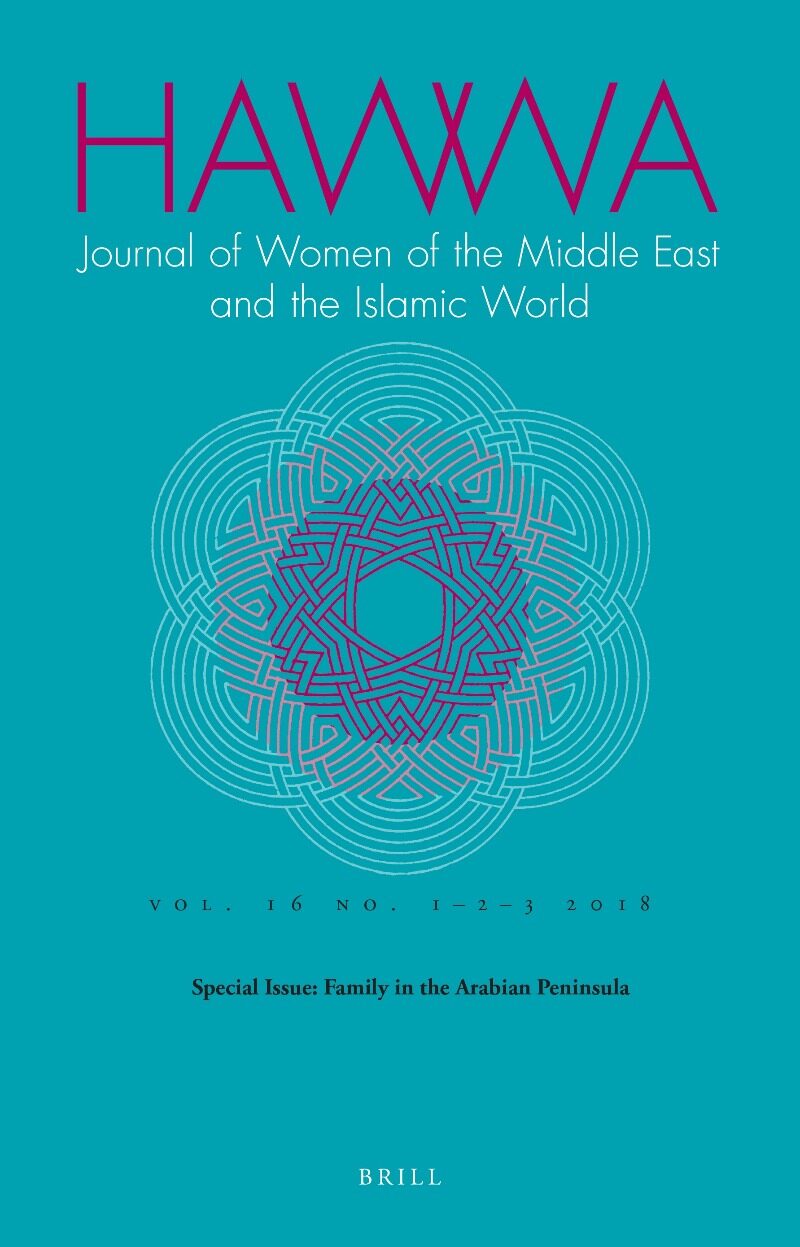HAWWA: Family in the Arabian Peninsula

To cite this publication: Elizabeth Wanucha and Zahra Babar, guest eds., “Family in the Arabian Peninsula,” CIRS Special Issue of Hawwa 16, nos. 1–3 (November 2018).
Despite growing scholarly focus on the Persian Gulf region in recent years, the institution of the family, one of the central building blocks of the Gulf community, has received limited attention. In the six monarchies of the Gulf, as well as in Yemen and Iraq, the family has historically been recognized as the fundamental unit of society within which social, economic, and cultural development takes place. Studying the family in any context is a complex undertaking, as the family exists not in isolation as a conceptual island unto itself, but rather is deeply embedded in and profoundly affected by changes in its surrounding society and the broader political and economic realities that are continuously evolving around it. In addition, to carefully analyze changes in practices within the family, one must also look to the family-oriented policies that have been implemented by governments to date, and their influences on family identity and behavior. These and other similar issues inform the particular articles that comprise this special issue of Hawwa.